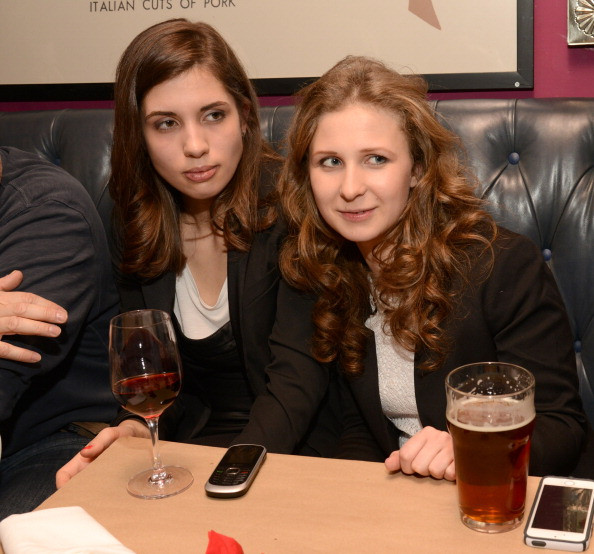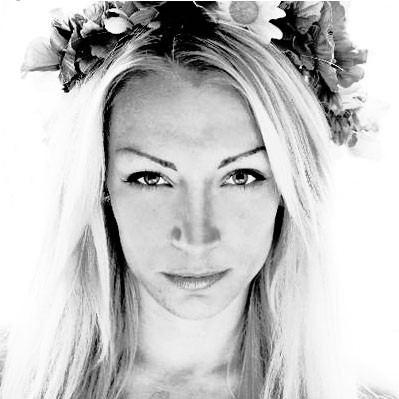Vladimir Putin 15 Years: In Russia we still don't know who Putin is

When in February, 2000, US journalist Trudy Rubin asked a Davos Economic Forum panel the question 'Who is Mr Putin?', no-one elected to answer. Fifteen years later, the question seems redundant - but would anyone be able to come up with a ready reply?
Two months on from Rubin's question, on 7 May 2000, Prime Minister Putin was sworn in as the President of Russia. The young leader, almost unknown to the wider audience, received 52.9% support in the elections - an incredibly big figure and an indictment of his fellow politicians, who had failed to provide an alternative to the departing, hugely unpopular President Boris Yeltsin.
Why did he enjoy that popularity? Trying to answer this question, let's rewind a little.
A former KGB agent in East Germany, and later a St Petersburg mayoral assistant, Putin moved to Moscow in 1996 to take a position as deputy head of the President's Administration. His political career hit the big time when he was appointed the head of the FSB, or the Federal Security Service, in 1998, making him one of the influential politicians in the Kremlin. In 1999, President Yeltsin made him Prime Minister.
Despite being Yeltsin's protege, Putin managed to publicly dissociate himself with the leader-drunkard and start formulating his own policies. The success that probably brought him most popular support was the hardline policy towards the separatist sentiment in Chechnya, a pain in the neck for the Russian bear throughout the 90s.
The counter-terrorism regime, widely known as the Second Chechen War, was active for 10 years but it did manage to finally bring peace to the region. In 1999, one of the most charismatic leaders of the separatist movement, mufti Akhmad Kadyrov, changed allegiance and helped Putin reclaim the unruly republic. Mr Kadyrov was appointed the head of Chechnya but died in a terrorist attack in 2004. His son Ramzan Kadyrov took over three years later.
Of course, that wasn't the only thing that brought Putin popularity. His rise to the power coincided with the rapid increase of oil prices, which allowed him to boost spending on salaries and pensions. The super-high oil incomes provided for the emergence of the middle class, mainly in the big cities, and the amelioration of the Russian economy as a whole.
Throughout his first two terms, Putin also acted decisively on the international stage. The culmination was his 2007 Munich Conference speech, where he openly challenged the monopolar world dominated by the United States. This bold statement was welcomed by the Russians who believed that their country's opinion had been neglected in the times of Yeltsin, and who felt humiliated especially after Nato forces led by the US bombed Yugoslavia in 1999, despite Russia's strong opposition.
Putin's rise to the power coincided with the rapid increase of oil prices, which allowed him to boost spending on salaries and pensions.
In 2008, Putin's second term came to an end, and his successor, Prime Minister Dmitriy Medvedev, took over. It was actually an effective swap that the two would play out again four years later, with much more serious consequences, but this time it ran smoothly. The West received a liberal counterpart they welcomed warmly, and Putin could continue controlling the country from his Prime Minister's chair and then have an opportunity to assume the presidency again without breaking the law.
However, President Medvedev was okay and could probably challenge Putin if he dared to. But the democratic illusion, and a hope for transparent and fair elections that enchanted many Russians during his term, dissolved when the duo announced a new swap.

Tens of thousands of people in Moscow and other cities, unhappy with this undisguised neglect of their opinion, took to the streets immediately after Election Day to demand free and fair elections. By early 2013, Putin's policy popularity hit the record-low 62%, while his personal approval rating dropped to as low as 37%, with more than half of the Russian public willing to see a new leader. President Putin was on demise.
But then the Ukrainian crisis happened, and it was extremely timely for Putin. The president did what he does best: used the mistakes of the opponents in the conflict to his advantage. The new authorities in Kiev issued a law discriminating against the Russian language in Ukraine, and that was a perfect excuse. Proclaiming that ethnic Russians and the Russian speakers in the country are in danger, Putin acted quickly: the referendum in the Crimean Peninsula, a home to Russia's Black Sea fleet, showed that the vast majority of the voters wanted to secede from Ukraine and become part of Russia. The region was soon officially called Russian territory.
Approval rating kept rising

'Putin's regime will not be a 15-year regime, it will be longer. But I am convinced that it will go down in history as Russia's last imperial regime, 100 years after the collapse of Tsarism began. Today, in fact, alongside Putin, the Russian Empire is living out its final years.'
Read Inna Shevchenko's take on Putin and his legacy here.
This expansion, and the war in the east of Ukraine, where the rioting regions of Donetsk and Lugansk are still opposing the official Kiev regime and are said to be receiving support from Russia, made the EU introduce sanctions against Putin. These measures coincided with the sharp fall in oil prices that deprived Russia's economy of the super-incomes it had become used to. But even despite this and the increased cost of living, Putin's approval rating has skyrocketed to an unbelievable 88%, according to the Levada Centre data.
But still, despite the successful action in the Crimea, which reinforced Putin's public image as the man who reclaimed Russia's status as a world power, his economic policies don't wow people that much. In more Levada Centre research, published in late March, 39% said Putin had failed to fairly distribute the country's incomes in the interests of the ordinary people; 34% stated he had failed to refund the losses they suffered during his reforms; and 23% were sure Putin had failed to stop the demise in production and overcome the crisis in the country's economy. Besides, people are unhappy about his ties to the oligarchs and corrupt politicians.
To add to the public's economic pessimism, the head of Russia's biggest bank, Sberbank, has said all reforms in Russia are doomed to fail if the system of state management remains unaltered. He's echoing the former finance minister Leonid Kudrin, who is sure that the current state management in Russia cannot provide for economic growth, and is calling for a cut in social and military spending.
Putin is holding on, so far. The general mood in society is that people trust him, they see him as an energetic and decisive leader, probably the most respected actor on the international stage, despite the high price they are paying.
But what is going to happen if the reforms and modernisation of the old-style economy don't happen? What if its efficiency, and people's wages, remain low? Would we remember Putin as an influential and bold leader who changed the world's future, or would he linger in our memory as a man who wasted some damn good chances to take his own country to prosperity?
So, who Mr Putin, the question remains, who are you?
© Copyright IBTimes 2025. All rights reserved.






















